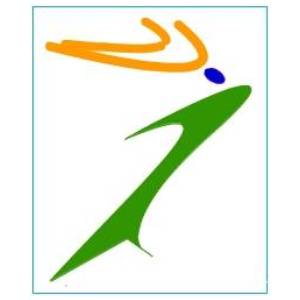Cause Area
Primary Sectors
Secondary Sectors
Financials
-
2017
Total IncomeRs.4,746,615Total ExpensesRs.3,892,819Tip: Click on any value above to exclude it. -
2018
Total IncomeRs.2,646,221Total ExpensesRs.3,782,149Non Program ExpensesRs.562,127Program ExpensesRs.3,220,022Tip: Click on any value above to exclude it. -
2019
Total IncomeRs.4,539,821Total ExpensesRs.5,356,306Non Program ExpensesRs.723,416Program ExpensesRs.4,632,890Tip: Click on any value above to exclude it. -
2020
Total IncomeRs.3,308,043Total ExpensesRs.3,925,964Non Program ExpensesRs.564,902Program ExpensesRs.3,361,062Tip: Click on any value above to exclude it.
Geographies Served
Programs
-
Samaj Shilpi (Grass roots Community Facilitator)
RIM's flagship program, grounded in the belief that within every community, there are individuals motivated to volunteer their time for positive change, is known as the Samaj Shilpi initiative. These village volunteers, referred to as Samaj Shilpis, are identified and trained by RIM in various government schemes and programs, as well as in guiding villagers on accessing them. All Samaj Shilpis possess digital literacy, understanding the online application processes crucial for numerous government initiatives. Villagers reach out to Samaj Shilpis for information on eligible schemes and receive assistance in the application process.
-
Menstrual Hygiene Management (MHM)
The promotion of Menstrual Hygiene Management (MHM) is essential for upholding the dignity of women and girls, and it should be an integral component of basic public health services accessible to every woman and girl as a fundamental right. MHM intersects with various vulnerabilities and sectors.
In contrast to many MHM initiatives primarily focusing on the provision of disposable absorbents, RIM emphasizes educating women and girls, enabling them to make informed choices for sustainable menstrual management. Our goal is to cultivate an environment where menstruation is openly discussed without fear, shame, or hesitation.
We provide training to women on crafting their own cloth pads and assist in establishing reusable cloth pad-making units in rural areas.
Impact Metrics
-
Number of Girls Impacted in District: Tirunelveli, Taluk: Ambasamudram
Program Name
Adolescent Girl Child Project
Year-wise Metrics- 2017-18 604
- 2018-19 604
- 2019-20 5214
-
Total Number of Villages Covered
Program Name
Samaj Shilpi Initiative
Year-wise Metrics- 2015-16 152
- 2017-18 148
- 2018-19 122
- 2019-20 88
Leadership Team
-
Ms. G. Suchitra Rao
President
-
Mr. Ravi M.
Secretary
-
Mr. Harish Krishnappa
Treasurer
Registration Details
-
PAN Card
AAATR4858D
-
Registration Number
894/2001-2002
-
CSR Form 1
Not Available
-
80G
AAATR4858DF20216
-
12A
AAATR4858DE20218
-
FCRA
094421491
About
-
Headquarters
Bangalore, Karnataka
-
Since
1999
Vision and Mission
Political & Religious Declarations
-
Political Affiliation
-
Religious Affiliation
Location
-
Headquarters
No. 447, 2nd Floor(2nd Gate)5th Main, 8th cross RMV Extn,2nd Stage
Directions, Bangalore, Karnataka -
Offices in Cities
Other Details
-
Type
Non-profit
-
Sub Type
Society
Technology Adoption
-
SOC 2 Compliant
No
-
Financial Management
-
Beneficiary Management



